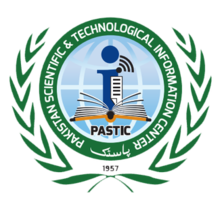Extraction of Fish Collagen Peptides from Fish Waste through Fermentation using Lactobacillus Bacteria
Abstract
Objective: To introduce a novel technique for extracting fish collagen peptides from fish waste. It could be a cheap and safe technique for obtaining peptides of fish as well as reducing the fish waste environmental load.
Study Design: A comparative study.
Place and Duration of Study: The study was conducted at Department of Microbiology, Hazara University Mansehra, Khyber Pakhtunkhwa and National University of Medical Sciences, Rawalpindi, Pakistan from August 2020 to July 2022.
Methods: For the extraction of the fish collagen peptides, lactobacillus bacteria fermentation was being performed, in which the bacteria from yogurt and dough were added to fish samples and incubated for one month at 30°C. Lactobacillus bacteria were diluted with serial dilution for colonies isolation and biochemical characterization. Fish waste was cut in small pieces and put in a bottle containing distilled water and lactobacillus bacteria species and kept at 30°C for one month. The Hestrin–Schramm media (HS) was added in small amount as a starter for initial growth of bacteria. The pH was analyzed after every 7 days and 5–10 ml sample was collected from each labelled flask. The collected samples were precipitated using Trichloroacetic acid (TCA) and analyzed on SDS-PAGE.
Results: Gel analysis revealed different size of fish collagen with higher concentration include the pattern for α1 and α2 chains with a molecular weight of 145 kDa and 132 kDa, respectively. The biological activity of extracted fish collagen was determined by using HaCaT cells proliferation analysis.
Conclusion: The current study concluded that fish waste could be converted to biofunctional collagen using nonpathogenic strains of lactobacillus bacteria for various biomedical applications.
How to cite this: Khan S, Tauseef I, Ikram M, Rauf S, Saeed RF, Sadiqi S, Lone NA, Ali L, Subhan F. Extraction of Fish Collagen Peptides from Fish Waste Through Fermentation Using Lactobacillus Bacteria. Life and Science. 2023; 4(4): 365-371. doi: http://doi.org/10.37185/LnS.1.1.423
Copyright (c) 2023 Salman Khan, Isfahan Tauseef, Muhammad Ikram, Sobia Rauf, Rida Fatima Saeed, Shahida Sadiqi, Nazir Ahmad Lone, Liaqat Ali, Fazli Fazli Subhan

This work is licensed under a Creative Commons Attribution-NonCommercial 4.0 International License.














